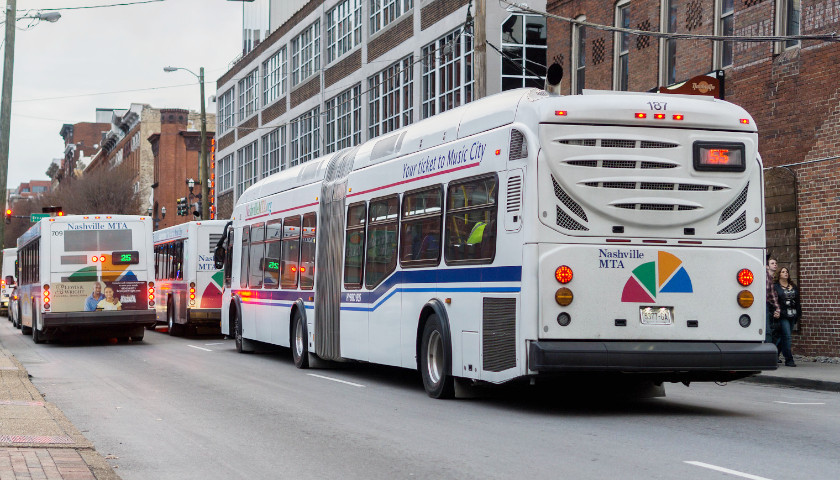A poll touted by Nashville Mayor Freddie O’Connell on Wednesday, which claims the majority of the city’s residents want greater investments into public transits, admittedly over-sampled black and Hispanic citizens in a bid to achieve “greater insight” into the city’s mood.
The Imagine Nashville survey claimed that 74 percent of Nashville residents strongly agree with the city spending additional money on public transportation. The pollsters further claimed that 33 percent of respondents cited a lack of public transportation as an issue the city needs to improve.
Responding to the survey on social media, O’Connell highlighted the result purportedly showing Nashvillians want greater investment into public transit.
“Specific to transit, our research showed widespread public support for investing in public transit with 74% of
Nashvillians strongly agreeing. In comparison to similarly sized cities, support for investing in public transit is
much higher in Nashville.” https://t.co/sOzmVo4Ol7— Freddie O’Connell (@freddieoconnell) February 28, 2024
Though pollsters said the survey had more than 10,000 respondents, in their methodology, they reveal, “a portion of the interviews were conducted by means of rigorous scientific research methodologies which allow more accurate and precise statistical representation of the city and its people” and that the information “reported in this news release come from this portion of the survey” which is scientific.
According to the pollsters, that portion of the survey involved interviews with a random sampling of 1,150 citizens who are 18 or older.
Despite the selections to match U.S. Census data about Nashville, the pollsters admit “an oversample of Black/African-American and Hispanic/Latino was included” to “lend greater insight and accuracy.”
Pollsters further claim that, for a “hypothetical case of a probability sample size” matching that of the survey they conducted, a margin of error would be plus or minus 3 percent.
O’Connell announced in February a November transportation referendum, but at the time offered few details for voters hoping to make a decision, aside from a promise to improve “sidewalks, signals service, and safety” as a result of the referendum.
Though few details are known to the public, it was previously reported that a half-cent sales tax may be necessary to fund O’Connell’s transit plans.
In one of his first acts after entering office, O’Connell signed an executive order calling for “car-free streets” and allocating the best use of roads based on Diversity, Equity, and Inclusion (DEI) principles.
O’Connell’s executive order directs Nashville to consider “pedestrians, cyclists, transit users, and drivers” alike when considering the city’s road network and further promised the city will equitably serve “disenfranchised populations and communities that have traditionally been underrepresented in planning and decision-making processes,” with special attention to “low-income individuals, people of color, older adults, children, youth, people with disabilities, and people living in households without access to a private automobile.”
– – –
Tom Pappert is the lead reporter for The Tennessee Star, and also reports for The Georgia Star News, The Virginia Star, and the Arizona Sun Times. Follow Tom on X/Twitter. Email tips to [email protected].
Photo “Nashville Buses” by Jarrett Stewart. CC BY-NC-SA 2.0.








